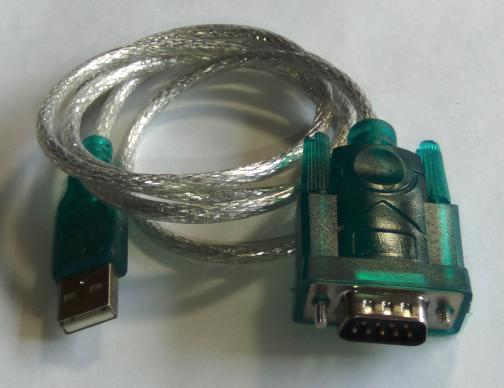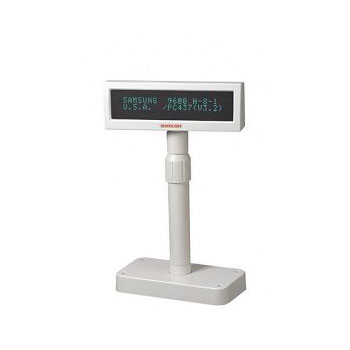Usb serial emulator on mac the device-cdc-serial emulator comes with an inf file to create a driver on pc and I have it working just fine I think I need the equivalant to work on mac os operating system running a program I did not write to talk to my device. Please contact me if you have expertise in this subject as I may have a programming project for you. I need a device driver converted from windows to mac along with creating a communication path. You need to have mac programming experience working with usb.
Send email to. This is an anonymous email service that anyone can read the email. I will delete email upon receipt.
Cdc Rs 232 Emulation Demo Driver For Mac
Any question post here. I just spent a hour or so on a mac remotely tring to install my device on a mac book pro running mac os x lion 10.7.2. When I plug in my device I can see it appear / disappear in two places. From terminal ls -l /dev/tty.m. file appears and disappears from network as an option to connect so device is there.
I deleted the network connection that was there so now I need to recreate it. When I look for a serial port with a program, no serial port is listed. How do I get the virtual serial port to appear in the program that I want to talk to serial port. From terminal ls -l /dev/tty.m. file appears and disappears Hmm, 'A new network interface has been attached' dialog disappeared at MacOSX 10.7. No dialog appears at CDC device plug in.
You'll see these devices under /dev cu.usbmodem xxxxxx tty.usbmodem xxxxxx You'll confirm device name using 'USB Prober' (/Developer/Applications/Utilities/USB Prober.app) - distributed with Xcode (free on App Store). USB Prober - IORegistry tab 0xfd: EHC1@1D,7 IOService AppleUSBEHCI 1: EHCI Root Hub Simulation@1D,7 2: HubDevice@fd100000 3: Card Reader@fd110000 4: IR Receiver@fd120000 5: HubDevice@fd140000 6: MPLAB® ICD3 tm (www.microchip.com)@fd142000 7: CDC RS-232 Emulation Demo@fd144000 AppleUSBCDC IOUSBInterface@0 IOUSBInterface@1 AppleUSBCDCACMData IOModemSerialStreamSync IOSerialBSDClient CFBundleIdentifier com.apple.iokit.IOSerialFamily IOCalloutDevice /dev/cu.usbmodemfd1441.

I just got one of these boards from sparkfun and i'm loving it! I have lots of higher level programming language experience, so interfacing with a serial port is a trivial task, but writing firmware code is something i haven't been ready to tackle. This thing got me up and running in no time! Enough raving.
Any idea if anyone has written drivers for the usb-rs232 interface for any other operating systems? I'd like to attach this thing to a mac mini (with osX/BSD) and have perl scripts and similar things control it. I looked around on microchip.com's site, and found little so far. Ps: i'm referring to the UBW board here. In case sparkfun has other usb stuff coming down the pipe.
Aaron, Sweet! Glad you like it. Let us all know what you end up doing with it. I have plugged the UBW into a Mac (OS 10.4), and an Ubuntu Linux machine (iBook hardware), and in both cases I did not have to install any new drivers. It just 'came up' as a serial port that I could see in /dev. (Both OSes have support for the CDC USB class, which is what the UBW uses - the 'virtual serial port' class).
I also could successfully talk to the UBW through a terminal emulator on both platforms. So just plug it in, and see what happens. You may be plesantly surprised. (If not, let us know that too).Brian. It has analog inputs, and I've begun adding code to the next version of Firmware D that will allow you to read them out at will, or have them sent back to the PC at speciffic rates (like you can do with the 'T' command right now).
The only issue is that they can not be enabled and disabled pin by pin. There are only certain combinations of pins that can have their analog inputs 'turned on'. (See the datasheet for more info.) Right now I'm planning on coding the voltage reference of the ADC to Vcc and Vdd since I think most people will just want to measure 10 bit 0-5V signals. So when will FW D 1.2 come out? I don't know quite yet. Maybe as soon as a week from now, maybe a bit longer than that.
Depends upon my work schedule mainly. EmbeddedMan wrote: I have plugged the UBW into a Mac (OS 10.4), and an Ubuntu Linux machine (iBook hardware), and in both cases I did not have to install any new drivers.
It just 'came up' as a serial port that I could see in /dev. (Both OSes have support for the CDC USB class, which is what the UBW uses - the 'virtual serial port' class). I also could successfully talk to the UBW through a terminal emulator on both platforms.
So just plug it in, and see what happens. You may be plesantly surprised. (If not, let us know that too) Hmmm. I plugged mine (which arrived today) into my Gentoo box and didn't get a driver association.
I'll try it on the Debian laptop partition shortly, but do you happen to know which driver module I need to build? There's nothing with CDC in the name in my config. I do have the 'generic' USB serial module installed. Thanks for a cool toy!
SolidSilver, Honestly I'm not quite sure. When I plugged it into my Ubuntu box, it just appeared as /dev/ttyACM something something. OK, here are some good resources. According to this source CDC ACM support (which is what we need) is built into the kernel. According to this source when you build your kernel you need to make sure that ' USB Modem (CDC ACM) support' is checked in make menuconfig. According to this source you need to have the cdc-acm driver installed in order to get this to work. I'm not a Linux guy (yet) but I hope this helps.
EmbeddedMan wrote:According to this source when you build your kernel you need to make sure that ' USB Modem (CDC ACM) support' is checked in make menuconfig. Yep, that seems to be the key. I won't get to try it for real for a bit, since I'm in the middle of a gcc upgrade.
(if you decide to be a Gentoo man, do the initial install with 3.4+, else you'll be in for a somewhat lengthy upgrade process ) Thanks much for the tip! Quick followup: that gcc upgrade went very badly. Faced with a full reinstall, I opted to move to Kubuntu and my BitWhacker comes up perfectly. A very cool toy!
Thanks for the tips (again)! Zatalian, The USB Bootloader that is used with the UBW board only works with the six USB PICs, but it will work on any board that uses one of those chips (and the obviously have to be set up for bootloading) And, as supplied by Microchip, it only runs under windows. However, if you examine the source for the PC app and the bootloader project, you can see that it is a very simple protocol that you send to the bootloader on the PIC to reprogram it.
Cdc Rs232 Emulation Demo Driver For Mac Windows 10

I'm sure you could program it in Linux pretty easily. In fact a new PFDSUSB replacement may already exist for Linux - I just don't know off the top of my head. The Microchip forums would be a good place to check.
Code: Full Speed device @ 2 (0x3D100000). Communication device: 'CDC RS-232 Emulation Demo' Device Descriptor Descriptor Version Number: 0x0200 Device Class: 2 (Communication) Device Subclass: 0 Device Protocol: 0 Device MaxPacketSize: 8 Device VendorID/ProductID: 0x04D8/0x000A (Microchip Technology Inc.) Device Version Number: 0x0000 Number of Configurations: 1 Manufacturer String: 1 'Microchip Technology Inc.' I'm still seeing 100ma with D 1.3, but that's the way I see it in the hex file too.
Cdc Rs232 Emulation Demo Driver For Mac Free
I was able to get 500ma by writing 0xFA to the PIC flash address 0x3A8E instead of the 0x32 (100ma) that is there now. I didn't bother going and finding where that came from in the source, but I'm sure you have a good idea. Thanks for the email support. Obviously your suggestion worked, since I'm running 1.3 now.
I looked it up in the datasheet and the bootblock protect isn't turned on right now (bit 7 of 0x300009 is 1), so pulling out the low write from the hex file was probably a good idea, otherwise Boot Down would have happily overwritten some of the bootloader.